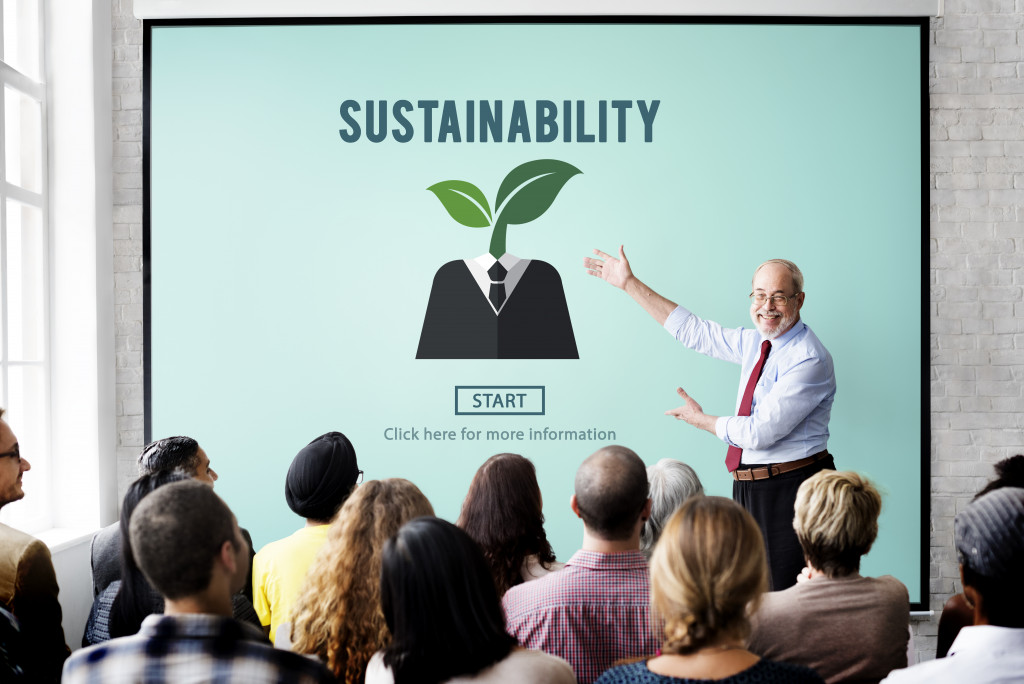Markets and Markets postulates that the intelligent industrial systems (Industry 4.0) market will enjoy a compound annual growth rate of 16.9% to hit a ceiling-high of $156.6B by the year 2024. As Markets and Markets further highlights, this will require ensuring success in individual segments of the market. The critical components here include industrial robotics, artificial intelligence, the internet of things, 3D printing, and 5G.
However, to a great extent, optimizing industrial processes and machine performance alone will not do.
Sustainability for success
The success of this market plugs firmly into embracing technology to speed up the development processes of state-of-the-art equipment and advanced industrial processes. However, with the COVID-19 pandemic maiming national economies globally, there will be more to do to achieve this success. It is time for industry leaders to put aside their differences.
Sustainable market success will call for all stakeholders joining hands to create technologies and push for legislation that will hasten the industry’s growth. Besides developing disruptive technologies, tech and innovation investment should also even embrace further investing in life insurance and strategic business planning. Still, human resource is the lifeblood of business success.
Focusing on skill equipping
In recent past years, there has been a massive shift to reduce human resources across industries, and the intelligent industrial systems market was not any different. Automatic industrial equipment and systems have been gradually taking the place of human resources. And, yes, that increased companies’ throughput and financial returns.
However, irrespective of using intelligent systems, the next phase of the industry’s success will depend much on how to analyze and utilize the collected data to improve future industrial solutions.
The place of human resource in Industry 4.0
To a great extent, the analysis and utilization of machine-collected data will require human personnel. Yes, human resources to model the most profitable and sustainable solutions for sustainable market success. Installation, inspection, and maintenance of these new industrial technologies are also labor-intensive. This move does not mean downscaling input of innovation and using technologically-advanced equipment.
However, stakeholders should also invest more in human resources and equipping them with the necessary skills to drive the industry into a tremendous success.

Focusing on better manufacturing
Sustainability in the intelligent industrial systems sector will demand more of quality than quantity in all equipment and their accessories adjuncts. That will mean integrating energy-saving technologies and using renewable energy and improving efficiency. It will also be crucial to emphasize the standardization of every equipment product to ensure compatibility across brands irrespective of the application.
Conclusion: Beyond normalcy
Bouncing back from the adverse socio-economic effects of the COVID-19 pandemic will require a complete turnaround from normality for the intelligent industrial systems market to reflect the projected growth rate. Normalcy would have been to continue investing in automatic industrial systems over human resources. Also, that would mean feeding into the competition with varying technologies as many as there are industry leaders and avoiding revising industry regulations.
Going forward, it will be pertinent to prioritize the input of human resource in developing much more advanced industrial equipment and related technologies, and monitoring to optimize their performance. Also, it will require having industry regulations insist on life insurance investment to cover human resources. Equally, they should insist on manufacturing economical industrial machinery and accessories with an emphasis on using renewable energy and reducing energy consumption.

